Institute for Social Justice
Asylum seekers and refugees
Our research currently has a particular focus on the experiences of asylum seekers and refugees.
/prod01/yorksjacuk/media/content-assets/safe-images/1600-x-1000/Group-photo---YSJ-allotments-for-refugees-2.jpg)
Asylum seekers and refugees are often the most vulnerable within our society, frequently without easy access to support and facing barriers of prejudice, language and bureaucracy.
Research in this theme seeks to understand asylum seeker experiences and impact on policy and practice in areas such as resettlement and integration, race and the role of language in shaping perceptions and experience.
Current projects
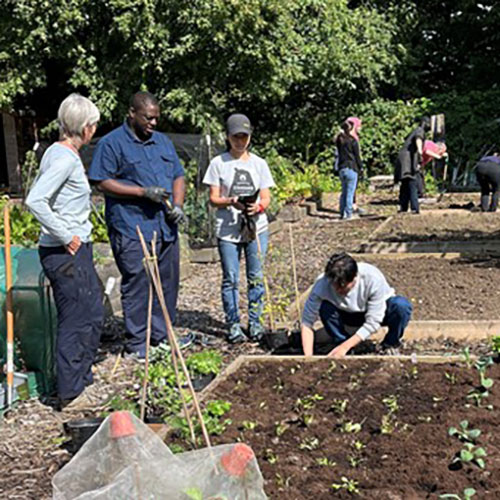
Asylum seekers and green social prescribing
This project involves exploration of the feasibility and benefit of therapeutic green social prescribing programmes for migrants with lived experience of psychological distress. Funded by the HEY Smile Foundation and NHS Charities Together, alongside Natural England, the initial research in 2023 comprised two studies with diverse ethnic minority communities on engaging with outdoor activities. Study 1 was a feasibility study to explore a participatory methodology in co-designing an allotment-based programme based at York St John University for sanctuary seeking migrants with lived experience of psychological distress. Study 2 focused on co-designing an evaluation tool with community groups of migrants based in Yorkshire and the Humber to determine the impact of their outdoor activities for their service users.
Following the success of this project, building on this work of the test and learn programme York St John University received further funding from HEY Smile Foundation for an ongoing follow-on research project. The research is lead by Professor Divine Charura, with involvement from Dr Berding-Barwick (until 2024) and research assistant Helen Butt.
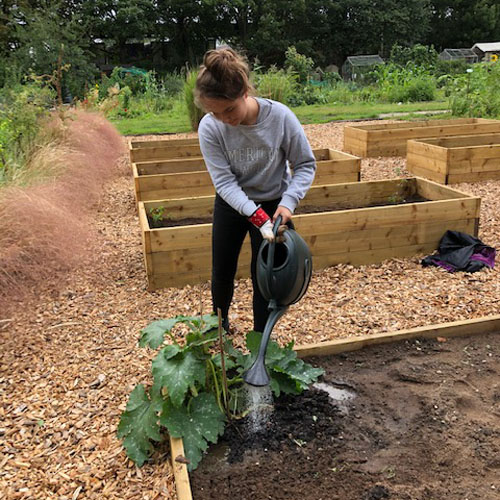
Community allotment for refugees
The research is a community-based collaboration that is using a newly developed allotment space to support York-based refugees to adjust, integrate and become self-supporting in their new life in the UK.
Run by Hannah Spring (health) and Fiona Howlett (occupational therapy), the project places a strong emphasis on social justice and is a collaborative endeavour between occupational therapy staff and students at York St John University and staff, volunteers and service users at Refugee Action York.
There is evidence supporting the therapeutic benefits of gardening and horticulture for refugees and this project will help us to study these effects further in the context of community integration, health and wellbeing.
For further information contact Dr Hannah Spring.
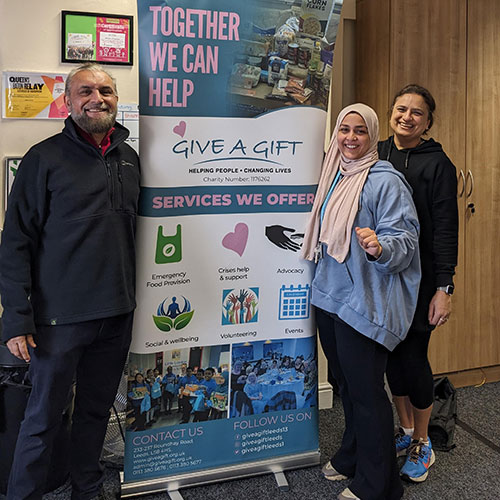
Give a Gift partnership
Refugees and asylum seekers are often seen as objects, threats, or passive recipients of support, rather than active and equal members in our communities. Through a Community Research Grant our partnership with Give A Gift began in order identify inequalities in the services provided to refugees and asylum seekers in Leeds. Through co-produced research, a series of recommendations were listed to support asylum seekers and refugees to overcome barriers in participating in local decision-making. The research highlighted the importance of volunteering schemes and cultural recognition to deliver effective community-based interventions. We plan to carry on developing this partnership by exploring potential initiatives that could lead to better integration of refugees and asylum seekers in everyday living and policy-making.
This project was funded by an ISJ Community Research Grant. Read our report: Listening to community perspectives (PDF, 2 MB).
Archived projects
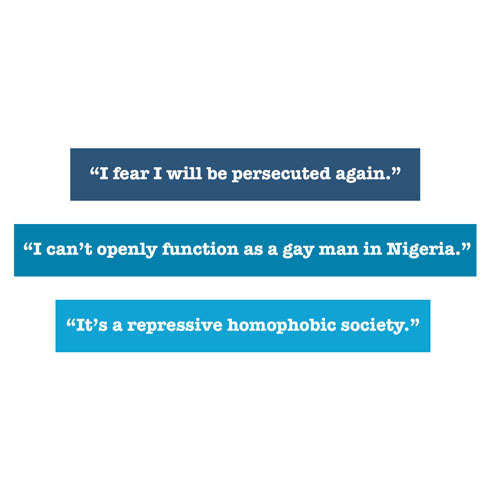
Barriers of Language and LGBT+ Asylum Seekers
How do we overcome the barriers facing LGBT+ people seeking asylum in the UK?
Most LGBT+ asylum seekers are unsuccessful in their efforts to gain asylum in the UK, yet our understanding of why this is the case has been relatively under-researched. We know language can be a key barrier, whether that is in the Home Office interviews that asylum seekers must participate in, the paperwork they must complete, or the legal process they enter.
The Institute is funding a new collaboration between experts in Language and Linguistics, and Law, alongside specialist organisations that work with asylum seekers, to explore the particular experiences of LGBT+ communities and how language throughout the asylum seeking process might prejudice the outcomes this cohort experiences.
For further information contact Professor Helen Sauntson.
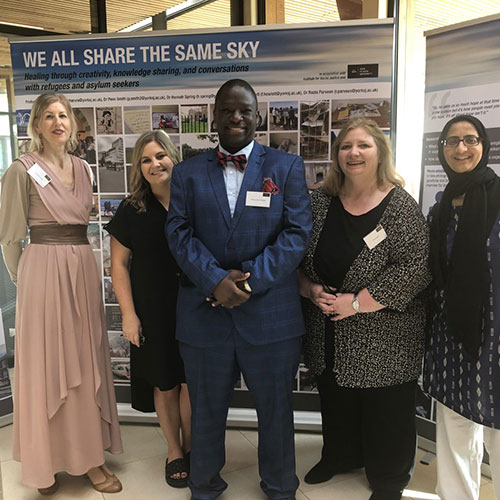
Integration experiences of asylum seekers and refugees
On arrival in the UK, refugees and asylum seekers often face numerous problems. These are associated with the asylum application process, prohibition to work, lack of access to health care, freedom of movement, and language barriers. Furthermore, Sanctuary seekers are most in need of health, welfare and other support services but often do not have easy access to either. This research used photo-elicitation and interviews to explore these experiences.
